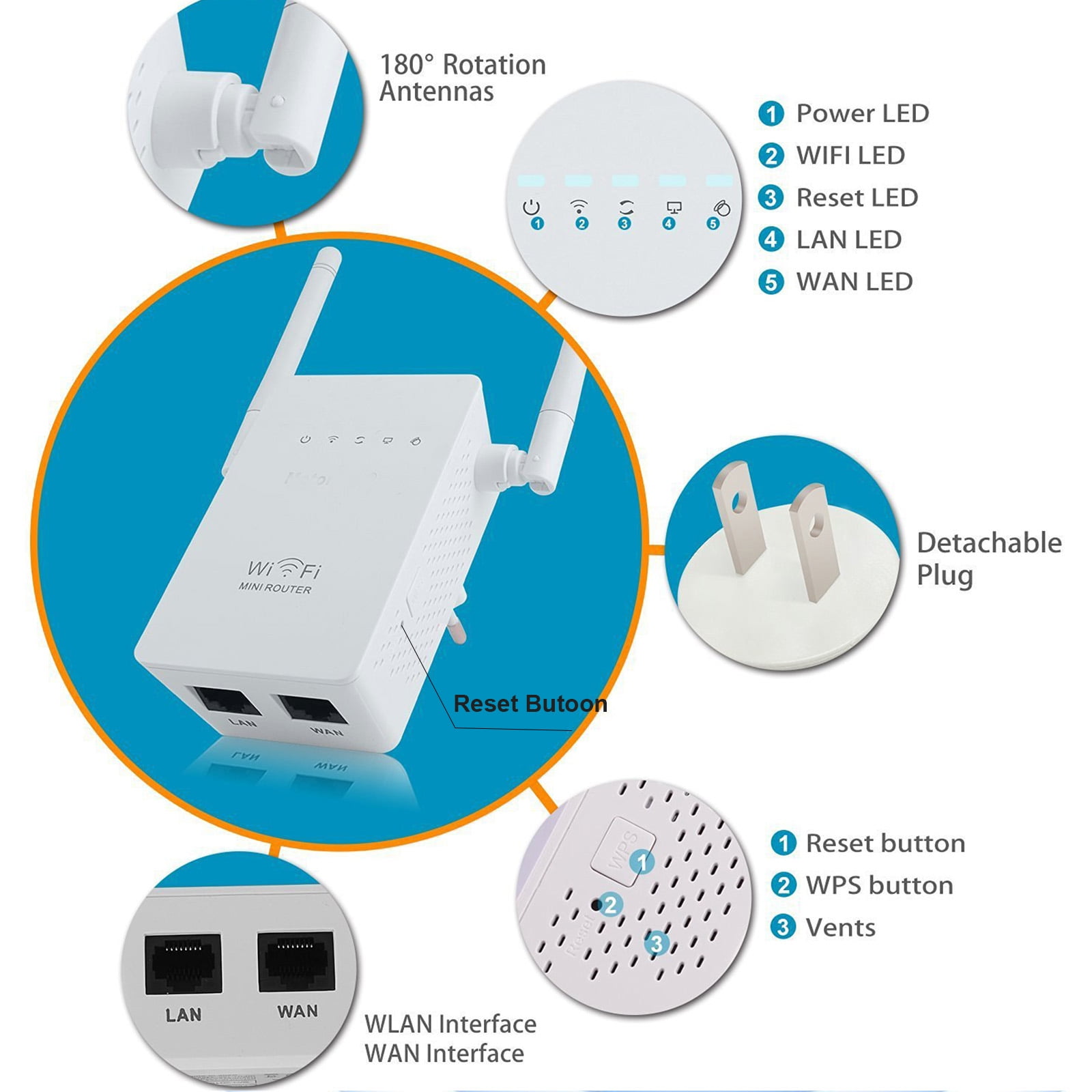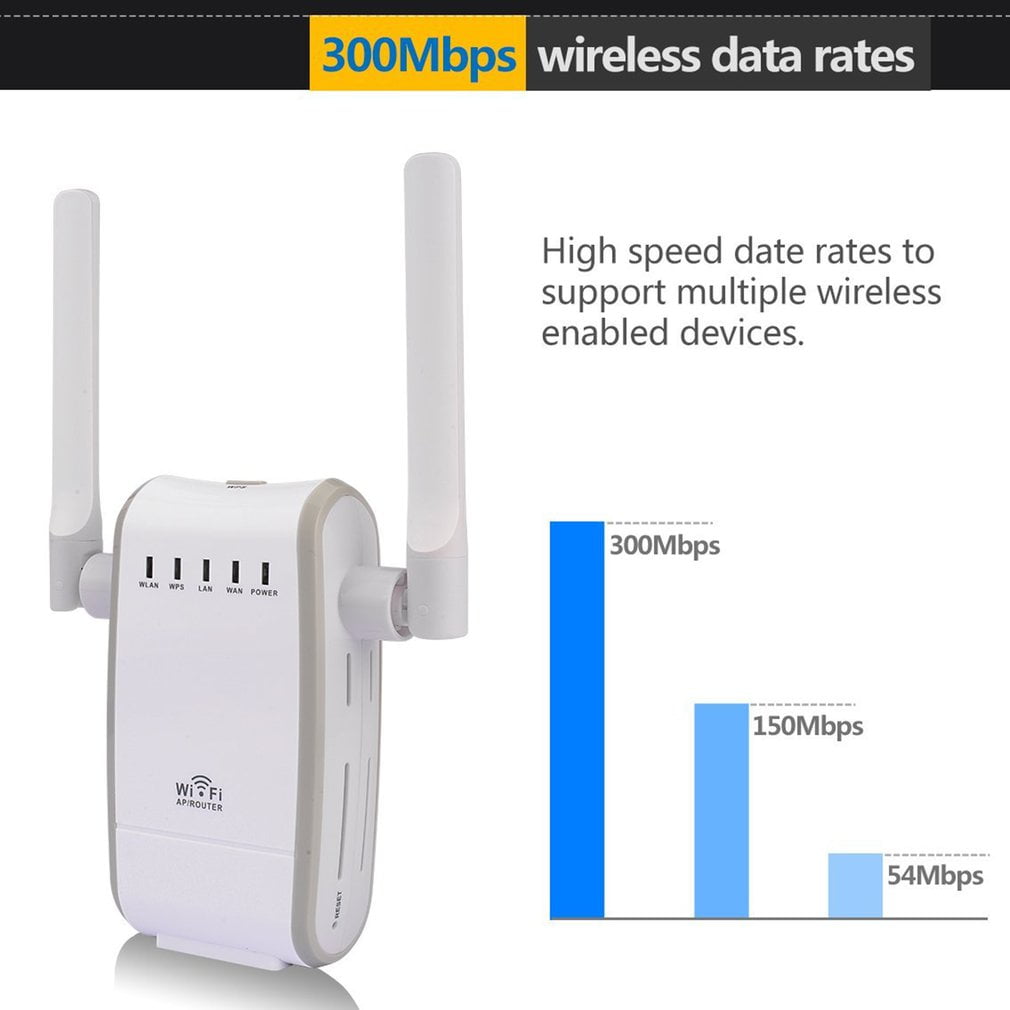

A dual-band Wi-Fi extender that supports 2.4 GHz and 5 GHz is required if you wish to cover a big area with a robust Wi-Fi signal. Any basic Wi-Fi extension should suffice if it’s only a single small room. Consider how many additional rooms you’d like the extender to accommodate. The choice of Wi-Fi extenders and boosters depends on your budget and demand. Setting up a mesh system isn’t much more difficult, but it takes more time and involves connecting multiple devices simultaneously.
#Wireless repeater vs extender password#
The benefit of using a mesh system is that you can use a single network name and password throughout your entire house, whereas each spot with an extender requires its network name and password. Mesh Wi-Fi (also called whole-home Wi-Fi) and range extenders differ in that range extenders attempt to boost one weak spot at a time, while mesh systems are designed to blanket your entire house with strong Internet. So it all comes down to two big questions: How big is your house? And how bad is your wireless coverage issue? If you want a seamless experience across multiple rooms and floors in large houses (more than 3,000 square feet), you need something more advanced, like a mesh system. On the other end, a simple range extender can boost weak signals from your wireless router. On one end, there are mesh Wi-Fi systems like Eero or Orbi, which blanket your home in Wi-Fi. The best way to think about extenders and boosters is to picture them as part of a spectrum.

Backward compatibility exists between 802.11ac and 802.11n, 802.11g, and 802.11b technology.

802.11ac is the most modern and third-generation Wi-Fi standard for wireless home networking. 802.11ac, on the other hand, operates at 5 GHz and requires a 5 GHz-capable access point. Backward compatibility is common among 802.11 compliant devices. Today, Wireless range extenders are available that support all 802.11 protocols. TP-link was one of the first companies to produce Wi-Fi range extenders in 1999.A wireless booster is required when two or more hosts need to be connected through the IEEE 802.11 protocol, but the distance between them is too great to establish a direct connection.This implies that if you want faster Internet, you don’t have to buy a new router. Wi-Fi boosters are great for boosting Wi-Fi signals in dead regions, but they can also help with improving Wi-Fi speed.Although a Wi-Fi booster, network extender, and repeater are all designed to improve Wi-Fi coverage, the methods by which they do so differ.However, the latter will not just improve the existing connection but add additional ones and make them reach further with better power over the existing connection. The Wi-Fi extender can be more complex as it involves setting multiple units around your home to build a strong network. Wi-Fi booster enhances the Wi-Fi signal within your home or office without any hassles as you have to take care only of setting up one device. These two devices are very different in the performance they offer.Inc, Ruckus Wireless, Inc, Cisco Systems, Ericsson Can work for a small office to large organization Utilization depends on the organization type. Booster: Side to Side ComparisonĪ networking device that helps signals reach dead network zonesĪcquires an existing signal from wireless access point and rebroadcasts it to create a second network There are various types of devices available, and we’ll describe the differences and how they function below so you can pick the right Wi-Fi repeater for your needs. Not all Wi-Fi extenders, however, work in the same way. There isn’t a clear distinction between devices labeled as “repeaters” and devices labeled as “extenders” by manufacturers. Wi-Fi extenders, repeaters, and boosters are basically the same: devices that expand Wi-Fi coverage. You may have heard about the many Wi-Fi extenders available, such as range extenders, mesh Wi-Fi, and repeaters, but you’re unsure which one will work best in your home or office.


 0 kommentar(er)
0 kommentar(er)
